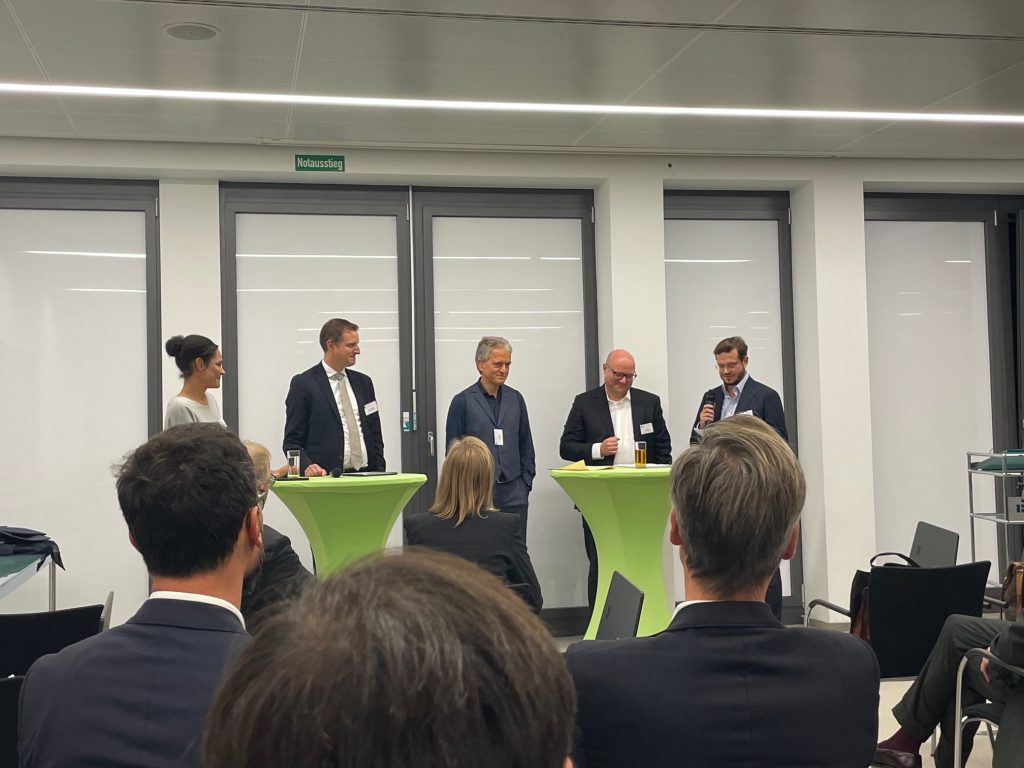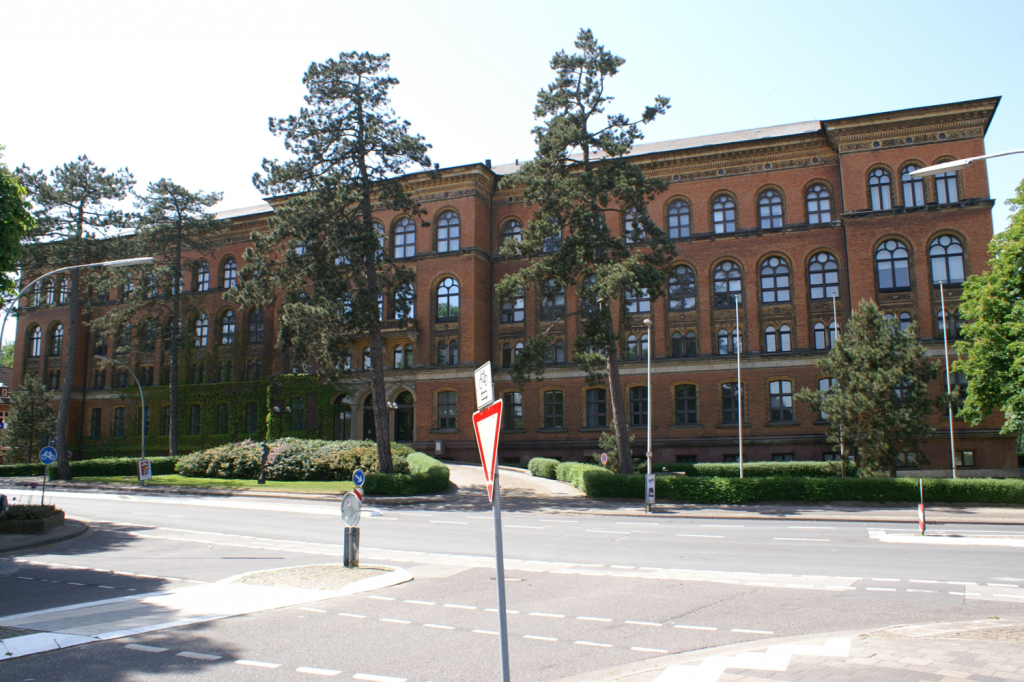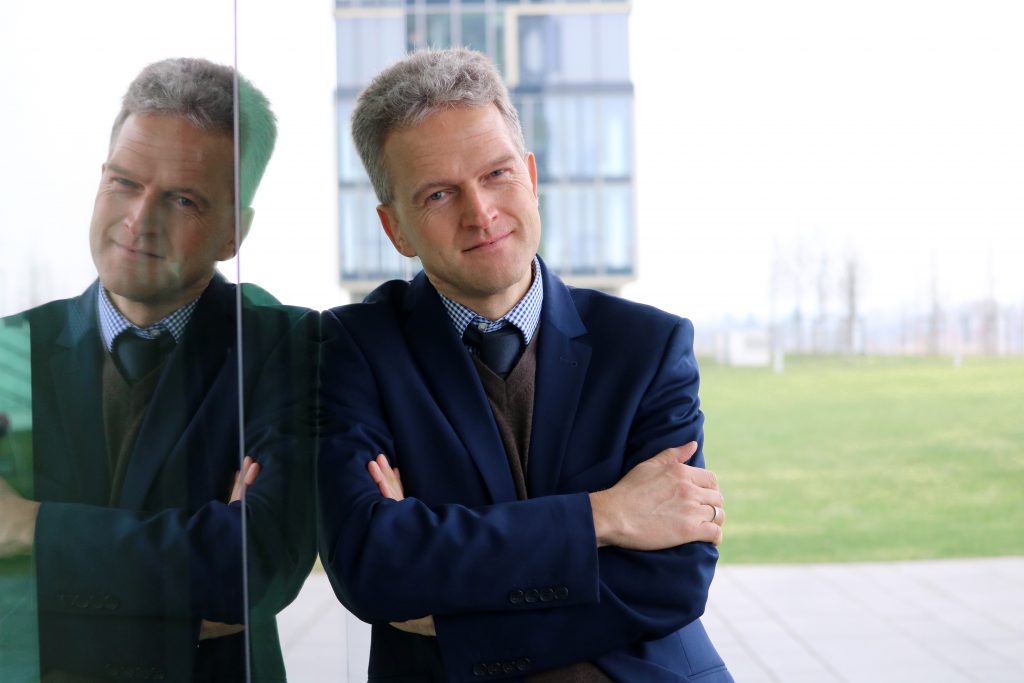
If I had a broadaxe….
PDF-Version: Click here
Suggested Citation: Klumpe, DKartJ 2023, 89-91
In Düsseldorf, the association of competition lawyers called “Studienvereinigung Kartellrecht” held a meeting to discuss litigation on cartel damages. Dr. Gerhard Klumpe, one of the most prolific German antitrust judges, was on the panel. Here he gives his impressions of the evening.
Say, a lawyer, a competition economist and a judge meet at a bar table… when a story begins like this, we are either in for a good laugh or – with the additional information that it takes place as an all-evening event in front of a sold-out house and that the matter involves talking about crystal balls, fortune-telling, a touch of voodoo and, last but not least, the use of a broadaxe – it is a strange play or, even more likely, a Hollywood C-movie…

In fact, it describes the scenery that presented itself to the participants of the meeting of the Rhineland regional group of the Studienvereinigung Kartellrecht e. V., that legendary German competition law association, on the evening of 26 October 2023. At the time, those people came together had wisely decided not to attend the Juve Awards ceremony in Frankfurt. (If you are not on LinkedIn: The Juve Awards is the Oscar for law firms). So, there was quite a crowd to watch the play in the Düsseldorf rooms of Heuking Kühn Lüer Wojtek. The combination of a lawyer (mainly representing plaintiffs), an economist and a judge promised to be explosive.
The explosiveness was based on the fact that expert opinions on competition economics have recently had problems in performance, to say the least, before European courts. For example, in the Trucks case, the Spanish Tribunal Supremo had recently confirmed in 15 decisions the lower courts, which had described the expert opinions submitted there by both the plaintiff and the defendant as unconvincing or unsuitable and had therefore estimated the cartel damage themselves, often on the basis of the known meta-studies (cf. on the whole also Bornemann/Suderow, NZKart 2023, 478, 480). The criticism became even more drastic in the decision of the Competition Appeal Tribunal (CAT), in which the court not only considered the expert opinions submitted to be irrelevant due to their incompleteness and numerous unresolved questions, but also doubted the independence of the experts because they had consistently taken the position more favourable to their party on the essential (methodological) questions (cf. Competition Appeal Tribunal, 7. 2. 2023 – [2023] CAT 6 – Royal Mail Group Ltd. v DAF Trucks Ltd.) and therefore felt compelled to take a broadaxe to determine the overcharge in the specific case (see instructively on the “broadaxe” approach in discussion of this decision Tolkmitt, ZwER 2023, 309, 314 et seq, 324 f., 326).

While the competition economists had already been exposed to criticism before the evening event, as is usually only the case with the decisions of the Cartel Chamber of a certain Westphalian Regional Court, the situation was further exacerbated by the fact that barely more than an hour before the event, news of a new resolution broke: A guidance brief by the Cartel Senate of the Schleswig-Holstein Higher Regional Court, publicised on social media, made the rounds (Case 16 U 97/22 Kart, ECLI:DE:OLGSH:2023:1012 Kart). The senate had not only published its guidance instantly (as is the style of the aforementioned Westphalian chamber) but it also announced its own damage estimate in a cartel case after previously highlighting the inadequacies of the expert opinions submitted.

This set the stage for a discussion that crackled with tension, in which the moderators Dr Anika Schürmann and Stephan Nagel were always on their toes, should the lawyer (Dr. Alex Petrasincu), the competition economist (Dr. Frederick Wandschneider) and the judge (the author of these lines here) get into each other’s hair at the high table.
Contrary to expectations, the panellists did not start to butt heads, but first analysed the current core problems in the preparation of econometric expert opinions, the introduction of such expertise into the legal proceedings as well as the assessment by the courts. The audience was very attentive.
It could not be disputed that there are considerable differences in the assessment of the same facts by different experts, that results – for example, zero damage in the case of long-lasting cartels – often appear counterintuitive and that, in general, the courts sometimes value their experience of life more highly than an econometric finding (instructive, for example, OLG Düsseldorf, 23.8.2017 – Case VI-Kart 5/16 (V) -, paras. 69, 75 – EDEKA/Tengelmann). In addition, it was clear that competition economists lack a certification and that there is no “gold standard” for the preparation of expert opinions on damages, as is well-known for auditors, for instance. In this respect, a broad consensus was reached that changes are necessary, or in the words of the competition economist: “Things must not remain as they are.”
It also became clear quite quickly that lawyers and, in particular, the courts need to move away from previous approaches, for example, by saving costs by not having the economist investigate the facts of the case or by no longer having the courts initiate or allow one round of pleadings after the other, coupled with the submission of ever new, situation-adapted expert opinions.

In general, the discussion – with strong participation of the audience! – was now increasingly directed towards possible solutions that should be efficient (also in terms of procedure). This included the question of whether and which deviations from the traditional triad of opinions (first plaintiff’s expert, next defendant’s expert, finally the court’s expert) are possible and compatible with the German procedural rules. Could there be a hot tubbing, possibly with a court expert called in “in an advisory capacity” according to section 144 of the German procedural code? Should court experts aim at identifying the “weaknesses” of the party expert reports only and determine an overcharge on this basis without a complete re-examination? Suggestions covered the whole bouquet the manner of bringing in economic expertise, but also the design of the cartel damages proceedings as a whole, both with and without legislative amendments.
The discussion featured some aspects that been already introduced elsewhere in the literary discussion, such as a rebuttable presumption of the amount of damage, the creation of more specialised cartel courts like the CAT, the possibility of economists participating on the bench, or more mundane aspects such as page limits for the pleadings to be submitted (cf. on many of these aspects, for example, Klumpe, WuW 2022, 462 et seq, 569 ff.). There were also more creative approaches such as “baseball arbitration” and the outsourcing of court opinions to the Monopolies Commission, in addition to joint expert statements and court instruction letters for the experts.

It became clear that all sides would ultimately like to see changes or reforms; the greatest consensus was probably reached with regard to the need for certain changes to the court system in the context of cartel damages litigation as well as the earliest possible involvement of economists on the court side.
Over the after-show beer/wine/soft drink/water/camilla tea, the discussion continued in spontaneously formed sub-committees; further breakthroughs in knowledge have not been reported so far, but have undoubtedly been achieved (D’Kart will certainly report in due course…). What can already be stated, however, is that all participants have probably gained new valuable insights into the way of thinking and working as well as the resulting problems of the other players in the cartel process. This exchange should therefore be intensified so that the participants become more familiar with the use of crystal balls on the one hand and the broadaxe on the other, until perhaps the point comes when, due to joint efforts, a new instrument (a microscope? An omniscient AI? Who knows…?!) takes the place of these rather archaic tools.
In any case, the Studienvereinigung, which lived up to its name (“study association”) with this event, has made a start into this direction.

Dr. Gerhard Klumpe is the presiding judge at the Regional Court of Dortmund as well as lecturer at the Heinrich Heine University and co-editor of the Neue Zeitschrift für Kartellrecht.
The title of the contribution is loosely based on the song by the folk group The Weavers (Pete Seeger/Lee Hays).